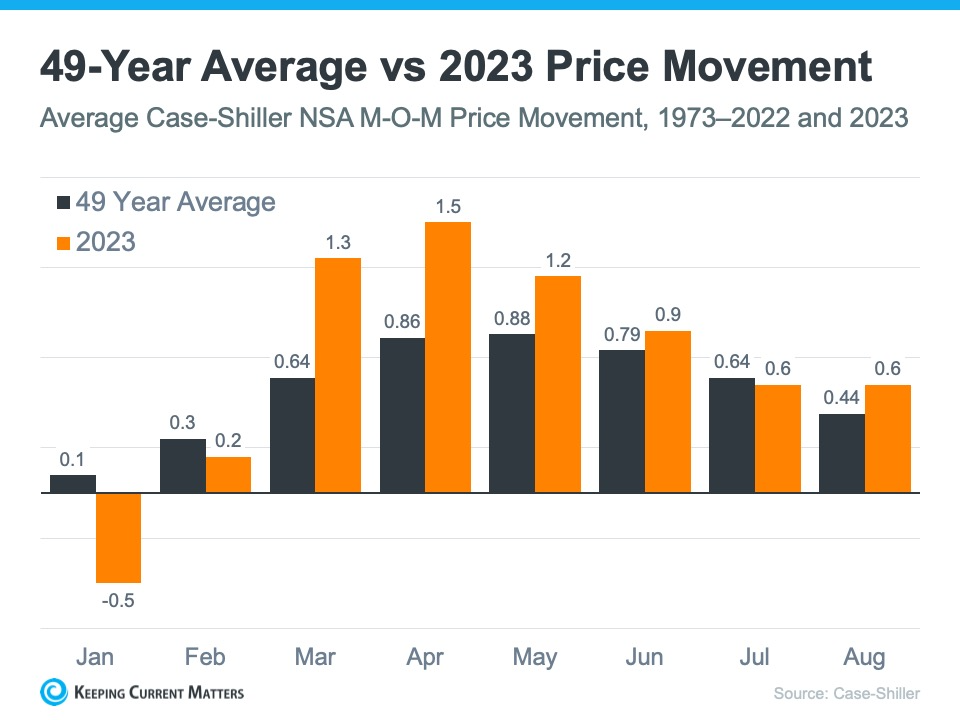In the ever-evolving landscape of the housing market, two terms often discussed are “depreciating appreciation” and “decelerating appreciation.” These terms sound somewhat alike, but they represent distinct dynamics within the housing market. Notably, the media sometimes confuses these concepts, which can lead to misunderstandings for home buyers and sellers. In this blog post, we’ll delve into this issue and shed light on how media misinterpretation can cause confusion within the housing market. First, let’s explore the key differences between these two phenomena and what they mean for the housing market.
Depreciating Appreciation
Depreciating appreciation refers to a situation in which the value of a property is decreasing over time. In other words, homes are losing value, and their prices are falling. This can be caused by various factors, such as economic downturns, declining neighborhood desirability, oversupply of housing, or significant structural issues with the property.Key characteristics of depreciating appreciation include:
Falling Property Values: The most apparent sign of depreciating appreciation is when home prices consistently decline. This can make it challenging for homeowners to sell their properties for a profit, and they may even face the risk of selling at a loss.
Buyer’s Market: In a depreciating market, there is usually an oversupply of homes, giving buyers the upper hand in negotiations. Sellers may need to lower their prices to attract potential buyers.
Economic Factors: Economic factors like rising unemployment, inflation, or high-interest rates can contribute to depreciating appreciation by reducing demand for homes and increasing foreclosures.
Negative Perception: The perception of a neighborhood or city can significantly affect property values. High crime rates, poor schools, or declining amenities can all contribute to depreciating appreciation.
Decelerating Appreciation
Decelerating appreciation, on the other hand, means that the rate at which home prices are increasing is slowing down. Homes are still appreciating in value, but the pace is decreasing. This phenomenon is often a natural part of the real estate market cycle and is not necessarily a negative development.Key characteristics of decelerating appreciation include:
Slower Price Growth: While home prices are still rising, the rate of increase is not as rapid as it once was. This can be seen as a healthy correction in a previously hot market.
Seller’s Market: Even in a decelerating appreciation environment, the housing market may still favor sellers, but with less intensity than during a strong appreciation period.
Economic Stability: Decelerating appreciation often occurs when economic conditions are stable, and interest rates are moderate. It can be seen as a sign of a maturing market.
Long-Term Investment: Decelerating appreciation can be an opportunity for long-term investors, as properties can still provide a solid return on investment over time.

The Confusing Media Messaging
One of the challenges surrounding depreciating and decelerating appreciation lies in how these concepts are portrayed in the media. Media outlets often use sensational headlines and overly simplistic explanations, causing confusion among the general public. Here’s how the media tends to blur the lines between these two terms:
Oversimplified Reporting: Media outlets, in their quest for brevity and impact, often oversimplify complex housing market trends. They might use catchy headlines like “Housing Market Slump” or “Property Values Plummet,” which can mislead readers into thinking the market is in a dire situation when it’s simply experiencing decelerating appreciation.
Neglecting Context: Media reports can overlook essential context. A slowdown in the rate of price increase may be painted as a crisis when, in reality, it could signify a market shift towards more sustainable growth. The media’s emphasis on short-term trends can ignore the long-term health of the market.
Fear-Driven Reporting: Fear sells, and media outlets are not immune to this reality. Stories of plummeting property values and the collapse of the housing market generate attention and revenue. However, this fear-driven reporting can create unnecessary panic among buyers and sellers.
The Impact on Home Buyers and Sellers
Media confusion regarding depreciating and decelerating appreciation can have a significant impact on home buyers and sellers:
Buyer Hesitation: In response to sensational media reports, potential homebuyers may become hesitant or fearful of entering the market, even during periods of decelerating appreciation where buying conditions are favorable.
Seller Anxiety: Sellers might rush to offload their properties when they perceive a market as declining, potentially leading to undervalued sales or even financial losses.
Missed Opportunities: Misunderstanding the market’s nuances can lead to missed investment opportunities, especially when buyers and sellers make impulsive decisions based on misleading media narratives.
Economic Consequences: An exaggerated perception of market downturns can affect the broader economy, leading to reduced consumer confidence, lower spending, and even job losses.
In the housing market, distinguishing between depreciating and decelerating appreciation is essential for making sound financial decisions. However, media misinterpretations can create confusion and unnecessary panic for buyers and sellers. To navigate the market successfully, it’s crucial to rely on expert advice, research local market conditions, and prioritize long-term goals over sensationalized headlines. By doing so, you can make informed choices and secure your financial future in the housing market.
And finally, if you have any questions or need further guidance on the housing market, depreciating and decelerating appreciation, or any related topic, please don’t hesitate to reach out. We’re here to help you make informed decisions and provide the support you need. Feel free to contact us anytime, as your success in the housing market is our priority. Happy house hunting and selling, and remember, we’re just a message or call away!





